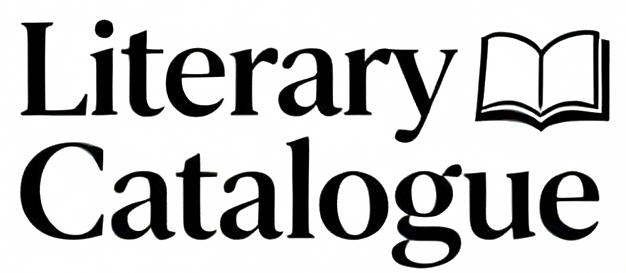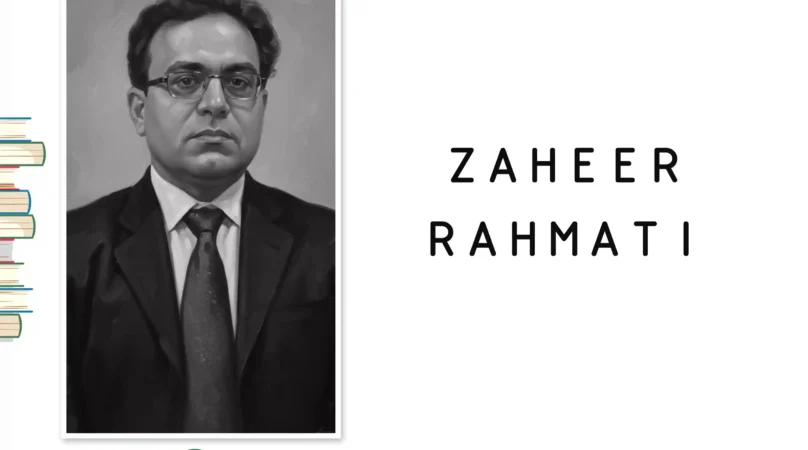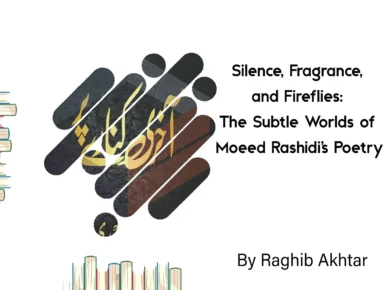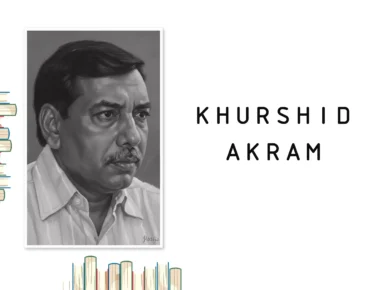Born in Rampur and nurtured by the rich literary cultures of Delhi and North India, Prof. Dr. Zahir Ali Khan—better known in Urdu literary circles by the pen name Zaheer Rahmati—stands as a distinguished scholar, teacher, poet, translator, and cultural organizer whose work spans more than three decades across academia and the public sphere of Urdu letters. As Professor and Urdu Officer at Zakir Husain Delhi College (Evening), University of Delhi, his career embodies an uncommon blend of critical rigor, institutional leadership, community engagement, and creative devotion to the living tradition of Urdu language and literature.
Early life and formation
Rooted in Rampur’s storied adab and manuscript culture, Zaheer Rahmati’z intellectual formation merges classical training with modern literary critical sensibilities, a synthesis later visible in his scholarship on ghazal poetics and textual traditions. His early association with Rampur’s literary milieu and later immersion in Delhi’s universities equipped him to move fluently between archival inquiry, modern criticism, and contemporary pedagogy. The Rampur–Delhi arc would also influence his sustained interest in Dabistan-e-Rampur, manuscriptology, and the historiography of Urdu’s aesthetic and critical lexicon.
Academic trajectory
Zaheer Rahmati completed an M.A. in Urdu at Rohilkhand University (1992), followed by an M.Phil. (1996) and Ph.D. (2001) at Jawaharlal Nehru University, where he also earned a Postgraduate Diploma in Urdu Mass Media (1996), consolidating a robust foundation in literary criticism and media studies. His academic promise was recognized early through UGC Junior Research Fellowship (1993–1995) and Senior Research Fellowship (1995–1998), anchoring a research-led teaching career that would later span undergraduate and postgraduate levels across Delhi’s premier institutions.
Teaching and mentorship
Zaheer Rahmati’z teaching odyssey began as a UGC Fellow and Senior Research Scholar at JNU, followed by guest faculty roles (2002–2005) where he taught Theories of Literary Criticism, Urdu Criticism, Introduction to Urdu Language and Literature, and Translation & Editing for Mass Media. He joined the University of Delhi as Ad hoc Lecturer in 2005 and, from July 2006, served at Zakir Husain Delhi College (Evening), rising from Assistant Professor to Associate Professor (2017) and Professor (2022), while additionally serving as Urdu Officer and Teacher-in-Charge across multiple terms. Over the years, he has guided doctoral research, with five Ph.D.s awarded under his supervision and several others in progress, shaping a new generation of Urdu scholars grounded in both tradition and contemporary discourse.
Research experience and projects
Zaheer Rahmati’z research engagements include roles as Project Associate for “Diasporic Urdu Literature — A Critical Analysis” at JNU and Project Fellow under DRS Phase-I at Jamia Millia Islamia, demonstrating a sustained commitment to both thematic and infrastructural development of Urdu studies. His work as Assistant Compiler for a monumental 4,000-page Hindi–Urdu dictionary (published by NCPUL) signals deep lexicographical competence and an ethic of service to language infrastructure and public scholarship.
Books and editorial labors
As author, editor, and translator, Zaheer Rahmati’z contributions span books, critical editions, and translations that extend Urdu’s reach across disciplines. His signature work, “Ghazal ki Tanqeedee Istilahaat” (Delhi Urdu Academy, 2004; 2nd ed. Kitabi Duniya, 2009; ISBN 81-89461-95-8), is widely cited for clarifying and consolidating the critical terminology of the ghazal—situating classical aesthetics within modern interpretive frameworks. He has prepared the critical edition “Tadveen-i-Dewan-i-Karam Ali Khan Karam” (sponsored by Rampur Raza Library), reflecting his chronic engagement with text, tradition, and archival scholarship.
Translator of disciplines
Zaheer Rahmati has translated major curricular texts—Psychology, Mathematics, Historiography—into Urdu for national institutions (NIOS, IGNOU, MANUU), advancing knowledge equity for Urdu-medium learners. This corpus includes senior secondary Psychology (6A, 6B), secondary Psychology, senior secondary Mathematics (IA), and M.A. History Historiography (1 and 2), a rare cross-disciplinary effort that melds clarity of concept with fidelity to Urdu’s scientific lexicon.
Vetting and editorial stewardship
Beyond translation, Khan has vetted and edited over 20 academic books across teacher education, psychology, chemistry, mathematics, and Urdu at the National Institute of Open Schooling, ensuring terminological precision and pedagogical usability. This behind-the-scenes labor—often undervalued—has been crucial to the continued modernization and standardization of Urdu in national curricula.
Articles, chapters, and seminar papers
Zaheer Rahmati’z published record exceeds sixty articles and papers spanning literary history, ghazal poetics, translation studies, textual criticism, and profiles of major modern and classical figures. His works include studies on Dabistan-e-Rampur’s ghazal tradition, translation theory and practice, the historiography of Urdu research, and interventions on figures like Ghalib, Fazl-e-Haq Khairabadi, and Momin Khan Momin, among others. He has also authored M.A.-level chapters for MANUU, IGNOU, Jamia Millia Islamia, and Jammu University—extending his impact through distance and open learning systems nationwide.
Public lectures and media work
Zaheer Rahmati has delivered lectures via IGNOU teleconferencing on The Development of Urdu Poetry, Non-Fiction Prose, and the Art of the Ghazal, in addition to more than thirty radio/TV lectures with NIOS since the mid-1990s. His mass media engagements range from AIR poetry recitations and talks to assisting documentary work at Rampur Raza Library, reflecting the breadth of his outreach beyond the classroom.
Workshops and national service
As a resource person, he has contributed to dictionary projects at NCPUL and NCERT, trilingual lexicons (Urdu–Hindi–English), supplementary readers, and terminology development for pedagogy—foundational infrastructure for Urdu’s contemporary usage. He has participated in workshops and symposia on Nehru’s vision, terminology in pedagogy, and manuscriptology, frequently bridging cultural history with practical curricular needs.
Creative work and poetic presence
Published widely in leading Urdu journals such as Aajkal, Iste‘ara, and Aiwan-e-Urdu, Zaheer Rahmati’z ghazals and nazms bear his literary signature as Zaheer Rahmati, with many poems translated into Japanese, English, and Hindi. His presence in mushairas and literary gatherings, including Jashn-e-Rekhta sessions, underscores a lived commitment to poetry as public culture and to Urdu as a shared civilizational inheritance.
Language advocacy and institution building
Zaheer Rahmati’z institutional leadership includes roles as Teacher-in-Charge, Urdu Officer, editor and editorial board member for the UGC-CARE listed journal Sham-e-Hayat, and convener of nationally sponsored seminars at Zakir Husain Delhi College (Evening). He has served on inspection and academic committees for NCPUL, SCERT, NIOS, and University bodies, shaping policy, quality assurance, and curricular alignment in Urdu education.
Distance and open learning contributions
Across MANUU, IGNOU, Uttarakhand Open University, Jammu University, and NIOS, Khan has written chapters, prepared audio-video scripts, and developed lesson materials, making specialized knowledge accessible to dispersed learner communities. His consultancy and chapter-writing for certificate and M.A. programs exemplify service to national education missions with Urdu as an enabling medium.
Administrative and cultural leadership
From presiding over student literary societies and debating forums to roles on proctorial, sports, arts, and culture committees, Khan has been a visible figure in campus life and student mentoring. He has led literary forums such as Bazm-e-Adab and Raftar Adabi Forum, as well as research associations like the National Urdu Research Scholar Association (NURSA), fostering collegial spaces for scholarship and creativity.
Awards and recognitions
His recognitions include Ridae Fazeelat (1996), Ahbabe Rampur (1997), Karwan-e-Adab (1998), Raza Ali Khan Academic Excellence (1999), and Hum Qalam (2008), reflecting esteem across research, poetry, and academic service. These honors, conferred by libraries, literary societies, and academic bodies, map a career that integrates excellence with community impact.
A critical lexicon for the ghazal
“Ghazal ki Tanqeedee Istilahaat” crystallizes Zaheer Rahmati’z distinctive scholarly contribution: the careful explication of terms that structure the ghazal’s aesthetics, rhetoric, and philosophical sensibility. Scholars and students alike have cited the work for clarifying categories that often travel between Persianate poetics, Indo-Muslim intellectual history, and modern Urdu criticism, offering a shared technical vocabulary for analysis.
Steward of Rampur’s legacy
Zaheer Rahmati’z scholarship on Dabistan-e-Rampur, manuscript studies, and textual editing positions him as a mediator between the archive and the present, returning classical voices to contemporary readerships. His association with Rampur Raza Library and essays on Rampur poets and critics testify to a sustained commitment to regional literary history as a pillar of national Urdu heritage.
The teacher’s voice
Students and colleagues know Khan as a communicator who bridges classical and modern texts with clarity and affection for language, demonstrating how Urdu’s literary forms illuminate ethical, aesthetic, and social questions. His teaching—spanning theory, criticism, and media—models an integrated approach to humanities education, equally at home in seminar rooms and studios.
Public intellectual and organizer
From organizing seminars and mushairas to contributing to curriculum reforms and dictionary projects, Zaheer Rahmati’z public work advances a vision of Urdu that is inclusive, dialogic, and future-facing. His editorial leadership at Sham-e-Hayat and convening of national seminars have created durable platforms for dialogue between researchers, poets, and the reading public.
Range of scholarship
Zaheer Rahmati’z essays range across translation theory, aesthetics, historiography, satire and humor in Urdu, press and journalism after independence, Ambedkar’s national vision, and critical profiles of poets like Makhmoor Saeedi and Talib Rampuri. He has authored pedagogic chapters on genres and major masnavis, including Qutub Mushtari and Gulzar-e-Naseem, extending classical studies into accessible teaching resources.
Cross-lingual and cross-disciplinary bridge
His translations in psychology, mathematics, and history are a model for how Urdu can serve as a precise vehicle for complex modern knowledge without sacrificing elegance or conceptual accuracy. This bridge-building, equally linguistic and epistemic, underscores a philosophy of education grounded in linguistic justice and intellectual inclusivity.
Affiliations and service
Zaheer Rahmati has served as observer, examiner, and committee member across JMI, DU, MANUU, Rohilkhand, and other universities, bringing a consistent eye for standards and scholarly method. His work with NCPUL inspections and open basic education oversight for NIOS reflects trust in his judgment and commitment to institutional probity.
Presence in the literary sphere
Under the name Zaheer Rahmati, his poetic and critical presence extends to print, radio, and digital platforms, with poetry hosted at leading repositories and portals. Appearances at celebrated festivals and mushairas have brought his work to wider audiences, sustaining the oral and communal life of Urdu poetry.
Legacy and ongoing work
As Professor and Urdu Officer at Zakir Husain Delhi College (Evening), Khan continues to teach, publish, mentor, and organize with characteristic energy, advancing Urdu’s academic and public futures. His career—spanning authorship, editing, translation, research supervision, curricular design, and community leadership—offers a template for a scholar-citizen whose life’s work is the service of language and culture.
Selected highlights
- Author of Ghazal ki Tanqeedee Istilahaat (1st ed. 2004; 2nd ed. 2009), a widely referenced work of critical terminology in Urdu poetics.
- Translator of multi-disciplinary textbooks (Psychology, Mathematics, Historiography) for NIOS/IGNOU/MANUU, widening access to modern knowledge in Urdu.
- Editor and textual scholar engaged with Rampur’s literary heritage and critical editions under Rampur Raza Library sponsorship
- Teacher, guide, and academic leader at JNU and the University of Delhi, including roles as Urdu Officer and head of department at ZHDCE.
- Organizer, editor, and public intellectual advancing Urdu through seminars, journals, workshops, and cultural forums.
In the arc from Rampur’s manuscript rooms to Delhi’s lecture halls and broadcasting studios, Prof. Dr. Zahir Ali Khan has fashioned a life pledged to the advancement of Urdu as a language of scholarship, citizenship, and art. As Zaheer Rahmati—poet, critic, editor, and educator—he continues to renew Urdu’s critical vocabulary and public relevance with the steady, generous labor of a scholar at home with both the classical canon and the modern world.
urdu poetry urdu shairy zaheer rahmati zaheer rehmati
Last modified: October 13, 2025




